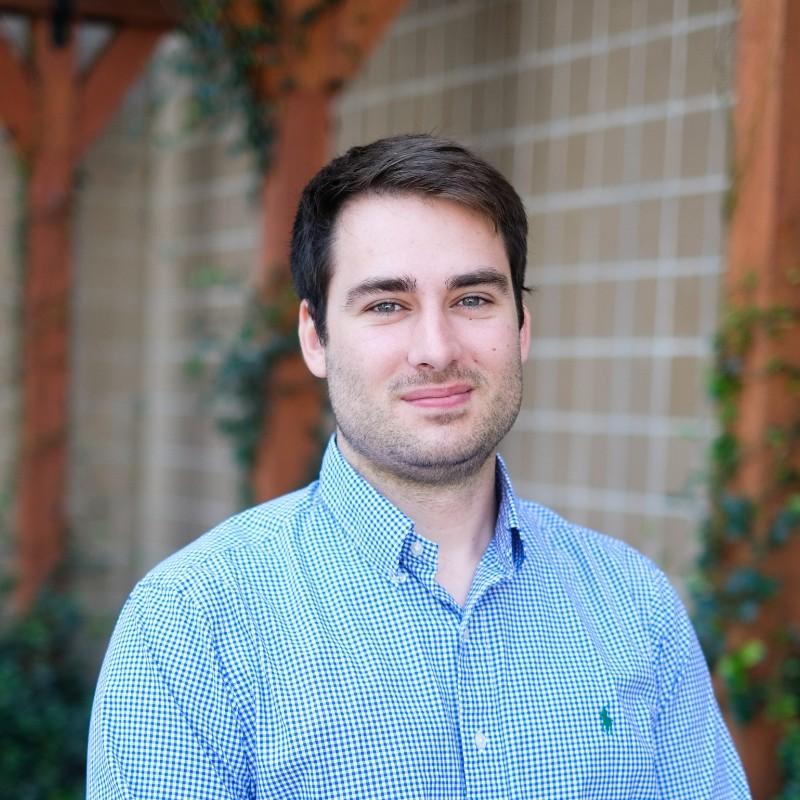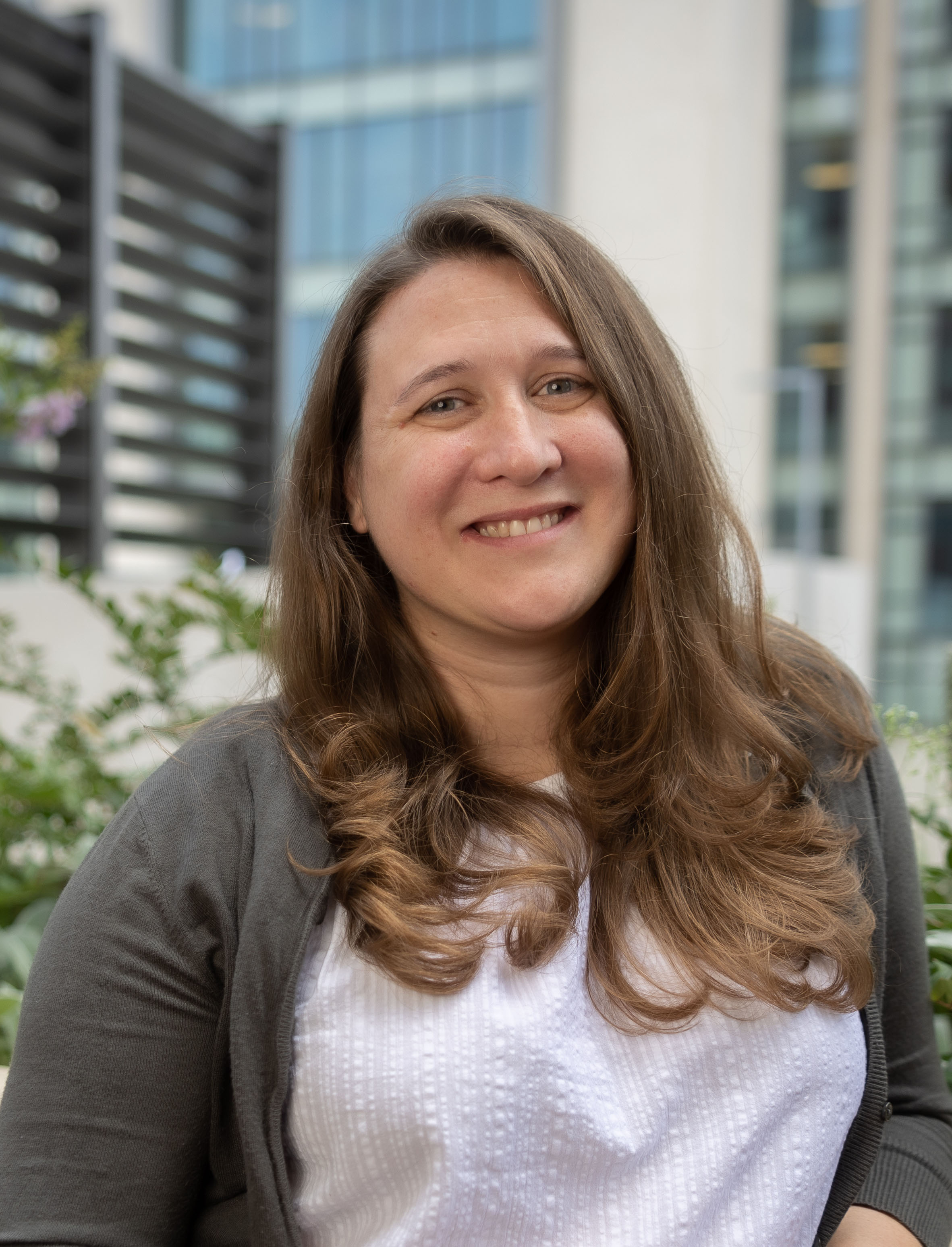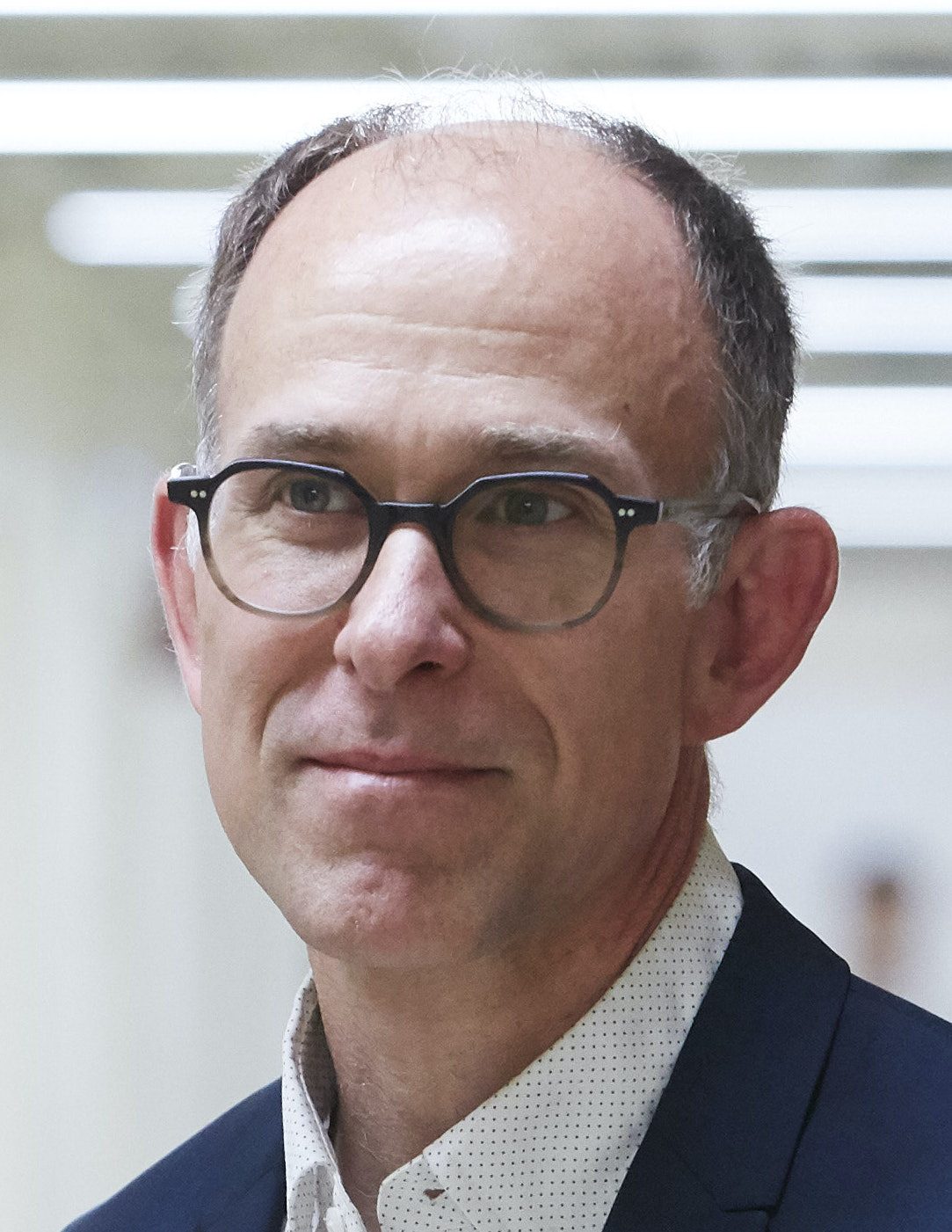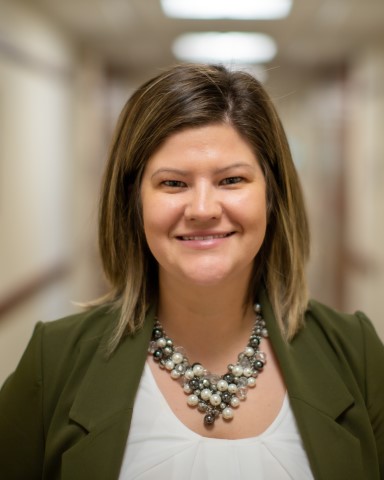Speaker Bios

I have focused on developing and implementing methods for understanding the genetic and environmental influences underlying the etiology of common cancers. In 2008, I led large genetic studies that identified common variants in CHRNA5 (PMID 20554942) that have substantial impact on both lung cancer risk and smoking behavior, making it more difficult for smokers to quit. Because individuals carrying this variant become more heavily nicotine dependent and are at higher risk for lung cancer, we have studied using a genetically informed precision medicine approach to smoking cessation management. Results from a clinical trial (PMID: 32602170) showed that patients with higher risk genotypes benefitted from pharmacological support during smoking cessation but low risk individuals did not. This finding indicates that a targeted approach to smoking cessation based on genetic information is efficacious.
I led the OncoArray Consortium that completed genotyping of about 500,000 individuals using a customized array developed with Illumina comprising 500,000 markers (PMID: 27697780). It was developed to decipher the genetic architecture of common cancers including prostate, colon, breast and ovarian cancers. Prior studies were genotyped in a heterogeneous manner making more difficult the identification of gene-environment interactions. Managing population-based analysis of this large study required developing a new analytical approach for characterizing the ethnic origin of participants to avoid confounding (PMID: 26961892). Results of studies using this array have been published in Nature and Nature Genetics for several cancer types. These papers have revealed the genetic architectures and more novel variants influencing Lung cancer. A recent publication identified a novel variant of ATM (L2307F, PMID: 32393777) that occurs most frequently in Ashkenazi populations and confers a 7-fold elevated risk for developing lung cancer among female never smokers. Gene-smoking interaction analyses identified additional genes that influence lung cancer risk differently in smokers versus nonsmokers (PMID: 29059373).
Dr. Wen-Ying Sylvia Chou a Program Director in the Health Communication and Informatics Research Branch of the Behavioral Research Program at the National Cancer Institute. A prolific mixed methods scholar with over 150 publications, Dr. Chou has led NIH funding initiatives and served as guest editors on the impact of the evolving communication landscape on public health. Her research areas include social media and health, patient-provider interactions, end-of-life care, health misinformation, and health communication inequalities. Dr. Chou holds MS and PhD degrees in Linguistics from Georgetown University, an MPH from UC Berkeley.

Joseph Dean received his PhD in Biomedical Sciences with a concentration in immunology from the University of Florida. Over the course of his PhD, he developed a keen interest and honed his skills in bioinformatics. He then briefly worked at IQVIA in their bioinformatics department, where he contributed to the development of novel single-cell sequencing technologies. Currently, he holds the position of Bioinformatics Scientist in Translational Research at Iovance Biotherapeutics. In this role, he analyzes data from various sequencing assays, develops machine learning predictive models, and actively participates in patent applications, regulatory filings, and publications. His primary objective is to drive insights that advance cancer therapeutics.
Joseph is passionate about sharing scientific data, particularly large data cohorts in the oncology field.
JAMES DUBOIS is the Director of the Bioethics Research Center, the Steven J. Bander Professor of Medical Ethics and Professionalism, and Professor of Psychology and Brain Sciences, at Washington University School of Medicine in St. Louis.
He has received nearly $15 million in research and training funding on ethical and social issues in research and healthcare. He served as principal investigator of an NIH-funded, R01 project, "Sharing Qualitative Research Data: Identifying and Addressing Ethical and Practical Barriers." This project produced data, guidance, and a toolkit for qualitative data sharing, including data de-identification software.
He is the founding Editor (with Ana Iltis) of Narrative Inquiry in Bioethics: A Journal of Qualitative Research, published by Johns Hopkins University Press.

Dr. Scarlett Lin Gomez is an epidemiologist with research interests in the role of structural and social drivers of health in producing inequities and disparities in cancer and other health outcomes. She is Professor in the Department of Epidemiology and Biostatistics, Co-Leader of the Cancer Control Program of the Helen Diller Family Comprehensive Cancer Center, and Director of the Greater Bay Area Cancer Registry, a part of the California Cancer Registry and the NCI Surveillance Epidemiology End Results (SEER) Program. She brings perspectives and experiences as a steward of population-based cancer registry data, and researcher who uses the data.

Dr. Katherine Hoadley is an Associate Professor in the Department of Genetics, the Lineberger Comprehensive Cancer Center, and Computational Medicine Program at the University of North Carolina at Chapel Hill. She received her PhD in genetics and molecular biology from UNC. Her research interests include improved understanding of cancer through integrative genomic analyses. She was a member of The Cancer Genome Atlas (TCGA) project playing a key role in the generation and analysis of the RNA sequencing project.

Dr. Kraft is the Director of the Trans-Divisional Research Program in the NCI’s Division of Cancer Epidemiology and Genetics. He supports the Division’s implementation of FAIR data sharing practices, oversees the Division’s Bioinformatics Core, and sits on the steering committee for the new Connect for Cancer Prevention Cohort. Connect is assembling multiple data types on participants, including questionnaires, electronic health records, images, germline genetics, and ‘omics from pre-cancerous and cancerous tissues. Connect’s data infrastructure was designed to ensure secure data collection, real-time monitoring, and sharing with the broad cancer research community, consistent with participant privacy and confidentiality.
Dr. Kraft’s research focuses on devising and applying statistical techniques to large-scale observational studies of genetic and circulating biomarkers, with particular emphasis on studies understanding the joint contribution of germline DNA variation, environmental exposures and biomarkers to risk of complex disease. He has contributed to multiple international consortia studying genetics and other exposures in relation to cancer risk over the last twenty years.

Jim is a cancer epidemiologist whose work combines population sciences, data science, and informatics. During 11 years in the NCI’s Intramural Research Program, his research focused on breast, ovarian, and uterine cancers. Soon after joining City of Hope, he began leading the California Teachers Study’s cloud strategy for biobanking and data collection, management, and sharing. Under his leadership, this cohort was the first to successfully deploy a data commons approach and make all its resources openly available to the entire research community.

Dr. Dawei Lin serves as the Associate Director for Bioinformatics and as the Senior Advisor to the Director of the Division of Allergy, Immunology, and Transplantation (DAIT) at NIAID, NIH. He oversees the Division’s data strategies and implements them by coordinating and funding research and technology programs. At the NIH level, Dr. Lin helps shape comprehensive data governance frameworks for biomedical data resources, encompassing data repositories, data stewardship, and computational infrastructure. His responsibilities include funding the immunology research and clinical data repository ImmPort, along with various data-infrastructure and AI initiatives. Internationally, Dr. Lin co-chairs the Research Data Alliance (RDA)/World Data System (WDS) Certification of Digital Repositories Interest Group and is a former board member of CoreTrustSeal, the standards body that certifies trustworthy data repositories. He also spearheaded the development and adoption of the TRUST Principles for digital repositories. Before joining NIH, Dr. Lin established the Bioinformatics Core at the University of California, Davis Genome Center and played an instrumental role in modernizing and operating the Protein Data Bank (PDB) at Brookhaven National Laboratory in New York. He earned his Ph.D. in Physical Chemistry from Peking University.

Diana Miglioretti, PhD, is Professor and Division Chief of Biostatistics at the University of California, Davis; co-lead of the UC Davis Comprehensive Cancer Center’s Population Sciences and Cancer Control Program; and an Affiliate Scientific Investigator at Kaiser Permanente Washington Health Research Institute. A Fellow of the American Statistical Association, her research focuses on breast cancer screening, diagnosis, and risk prediction; radiation exposure from medical imaging; and statistical methods for evaluating screening outcomes using clustered, longitudinal data. Dr. Miglioretti co-leads the U.S. Breast Cancer Surveillance Consortium (BCSC), a network of breast imaging registries that has collected data on more than 15 million examinations since 1994. Evidence from BCSC studies has informed screening guidelines from the U.S. Preventive Services Task Force and the American Cancer Society. Since 2011 she has served as contact PI and Director of the Biostatistics & Data Management Core for an NCI-funded program project on risk-based breast cancer screening and surveillance in community settings, with two competitive renewals (P01 CA233432). She is a dual-PI and Data Coordinating Center Director for a PCORI funded large pragmatic randomized trial evaluating AI for improving screening mammography outcomes (PCORI BPS-2024C2-39667); co-PI and Data Coordinating Center Director for the Watch the Spot Trial (PCORI PCS-1403-12653) comparing surveillance strategies for small pulmonary nodules; and PI of a study developing a mobile mammography program to increase screening in underserved Sacramento-area communities. She recently led a PCORI-funded pragmatic study (PCS-1504-30370) using BCSC data to optimize screening by breast density and was PI of an NCI R01 (CA185687) assessing pediatric and adolescent cancer risks from medical-imaging radiation in a cohort of more than four million children in the U.S. and Ontario, Canada.

Richard (Rick) Moser has been with the National Cancer Institute (NCI) for over 23 years, serving in several roles. He is currently the Research Methods Coordinator within the Behavioral Research Program (BRP), where he conducts his own research and supports BRP staff in accessing and analyzing data. He co-directs the Health Information National Trends Survey (HINTS), a nationally representative survey of the U.S. adult population, and directs the Grid-Enabled Measures (GEM) project, a web-based portal designed to promote the use of standardized health research measures and data sharing. Additionally, he serves as the Training Director for the Division of Cancer Control and Population Sciences (DCCPS), leading a program that includes approximately 40 fellows, and mentors several of his own fellows.
His research interests include conducting and promoting integrative data analysis, which involves merging or linking independent data sets and analyzing them to build a cumulative knowledge base and answer novel research questions. He is also interested in the application of data science methods and artificial intelligence to behaviorally focused cancer research. In 2019, he received the NCI's Outstanding Mentor Award. He is an author or co-author of more than 100 peer-reviewed journal articles and several book chapters, covering a range of topics including survey methodology, analytic procedures, health behaviors, and innovative uses of data.
Prior to joining the NCI, Richard conducted research at the Menlo Park VA Hospital, taught statistics at several Bay Area graduate schools, and conducted trainings for the statistical program SPSS. Richard received his Ph.D. in Clinical Psychology from Palo Alto University in 1996.

Lucila Ohno-Machado, MD, PhD, MBA, is the Deputy Dean for Biomedical Informatics and the Chair of Biomedical Informatics and Data Science. As Deputy Dean for Biomedical Informatics, Ohno-Machado oversees the infrastructure related to biomedical informatics research across the academic health system. Biomedical Informatics and Data Science serves as the hub for biomedical collaboration at Yale. In 2024, Dr. Ohno-Machado was appointed an MPI and Co-Director of the Yale Center for Clinical Investigation, Yale’s CTSA. She was health sciences associate dean for informatics and technology, founding chief of the Division of Biomedical Informatics in the Department of Medicine, and distinguished professor of medicine at the University of California San Diego (UCSD). She also was founding chair of the UCSD Health Department of Biomedical Informatics and founding faculty of the UCSD Halicioğlu Data Science Institute in La Jolla, California. She received her medical degree from the University of São Paulo, Brazil; her MBA from the Escola de Administração de São Paulo, Fundação Getúlio Vargas, Brazil; and her PhD in medical information sciences and computer science at Stanford University. She has led informatics centers that were funded by various NIH initiatives and by agencies such as AHRQ, PCORI, and NSF.

Amberlynn Reed, MPH, serves as the Assistant Director of the Office of Data Science and Health Informatics within the National Eye Institute. In her role, she spearheads initiatives aimed at enhancing data collection, sharing, and interoperability. Her overarching objective is to advance public health by leveraging scientific data and effective knowledge management strategies within the field of eye health sciences.

Dr. Kurt Rohloff is CTO and Co-founder of Duality Technologies (https://www.dualitytech.com). He leads advanced technology development teams focused on secure data collaboration capabilities to support applications and new products in medical, defense and financial domains. He has led multiple HHS-funded efforts developing and deploying secure medical data collaboration capabilities to help address challenges related to rare disease data collaboration. He is the founder of one of the main open-source software libraries for secure computing technologies, OpenFHE (https://www.openfhe.org). Duality Technologies products have been deployed to support defense and national security missions for the US and allied partners. He was previously a senior scientist at Raytheon BBN Technologies and Assoc. Prof. of Computer Science at NJIT. He is a recipient of the DARPA Young Faculty Award and a DARPA Director’s Fellowship. He received his Bachelor of Electrical Engineering degree from Georgia Tech, and his MS and Ph.D. degrees in Electrical Engineering from the University of Michigan.